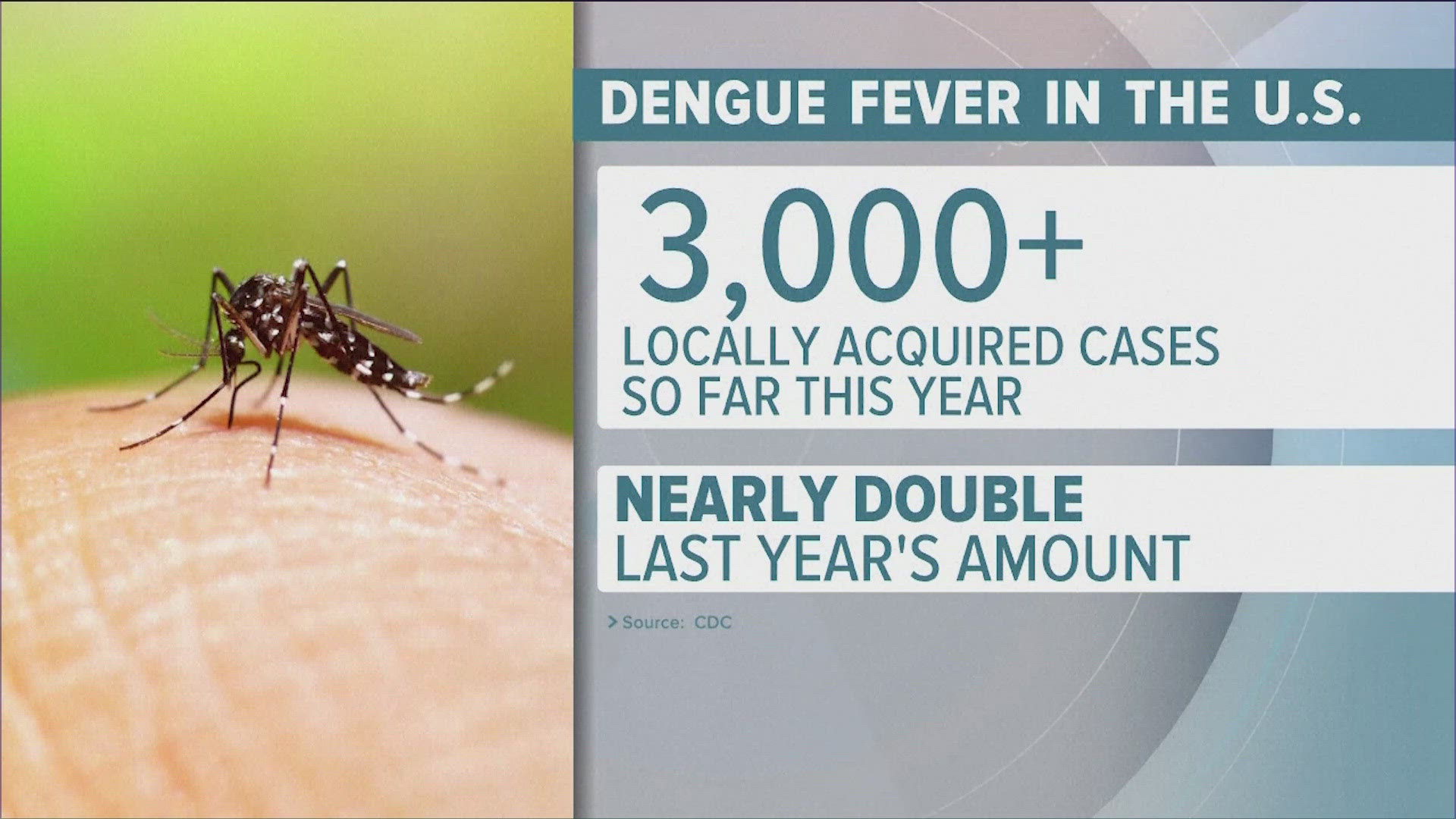AUSTIN -- Spina bifida is the most common disabling birth defect in the United States. It's a problem with the spinal cord that presents itself before birth and currently there is no cure.
A Central Texas teen suffering from the condition has already shown a unique ability to overcome Spina bifida by turning out champions in a most challenging sport.
Professional bull riders or PBR is one sport where cowboys and bulls get their kicks. And it's not just the cowboys trying to make the finals, it's an honor for the bulls who make it too.
At the Shumaker family farm, in Southeastern Travis County near Del Valle, Wade Shumaker gets the bulls into the pen all under the watchful eye of his 17-year-old daughter Rebecca, who sits in her wheelchair on a platform nearby. In PBR circles she's known as a stock contractor -- someone who raises bulls for the competition.
There's not very many girls, stock contractors anyway to begin with. Then one in a wheelchair, said Carolyn Shumaker, Rebecca's mother.
Rebecca's in a wheelchair due to Spina bifida. It occurs when the fetal spinal column doesn't close completely during the first month of pregnancy. After a blood test early on in her pregnancy with Rebecca, Carolyn recalls the doctors telling her it was either...
Spina bifida or twins, she said. Well, twins runs in our family.
But it wasn't twins. It was Spina bifida. Rebecca walked as a child, but the nerve damage and eventual leg paralysis put her in a wheelchair at age 10.
I just thought that I would eventually get out of it, said Rebecca. But then I've come to realize that it'll be a lot easier being in a chair, so I've just adjusted to it, and I'm OK with it.
Rebecca adjusted quite well. Just a few years ago she started taking an interest in the PBR. When she told her parents she wanted to become a stock contractor they resisted at first.
One: You are just not sure if that's really what they want to do, said Wade.
Wade says he wasn't worried about Rebecca's safety.
No, no, he said. Probably more mine.
That's because, by Rebecca's own admission, her dad is the one doing most the work.
However, Rebecca puts in plenty of hard work at the Seton Brain & Spine Recovery Center. She's in therapy three times a week.
I just love going there because it's not work, said Rebecca. I get to go and have fun but yet get stronger.
The Lone Star Paralysis Foundation provided the center with state-of-the-art equipment which allows patients to work out for free and get the therapy they need.
Where the hospital or the doctor are not saying, 'Well that's it. That's all we can do for you. Come back in see us in a few years and let us know how it's going, said Doug English, the president of the Lone Star Paralysis Foundation. Here they greet you at the door and say, All right, let's see how much you can get back and how much we can recover.
Therapists help Rebecca gain the strength to walk and regain the ability to know where her limbs are when her eyes are closed.
I think she's going to do wonderful things, said Mike Haynes, the manager of the Seton Brain & Spine Recovery Center.
Haynes himself is confined to a wheelchair.
I mean how many other little 15-16 (year-old) girls do you know that are raising bucking bulls? That's pretty amazing to me, he said.
Even more amazing when you consider Rebecca isn't just raising bucking bulls, she's raising winners. Three of her bulls have made the PBR finals.
The Shumaker's say there are contractors with far more experience who have never had one bull make it.
I'm sure a lot of people are probably jealous, said Carolyn with a chuckle.
It's led to some calling Rebecca the bull whisperer. She doesn't really like that nickname. She views herself more as not letting her Spina bifida hold her back.
If you love something and want to do it try it, she said. And don't give up.
Click here for more information on Seton Brain & Spine Recovery Center and the multidisciplinary approach used there.

